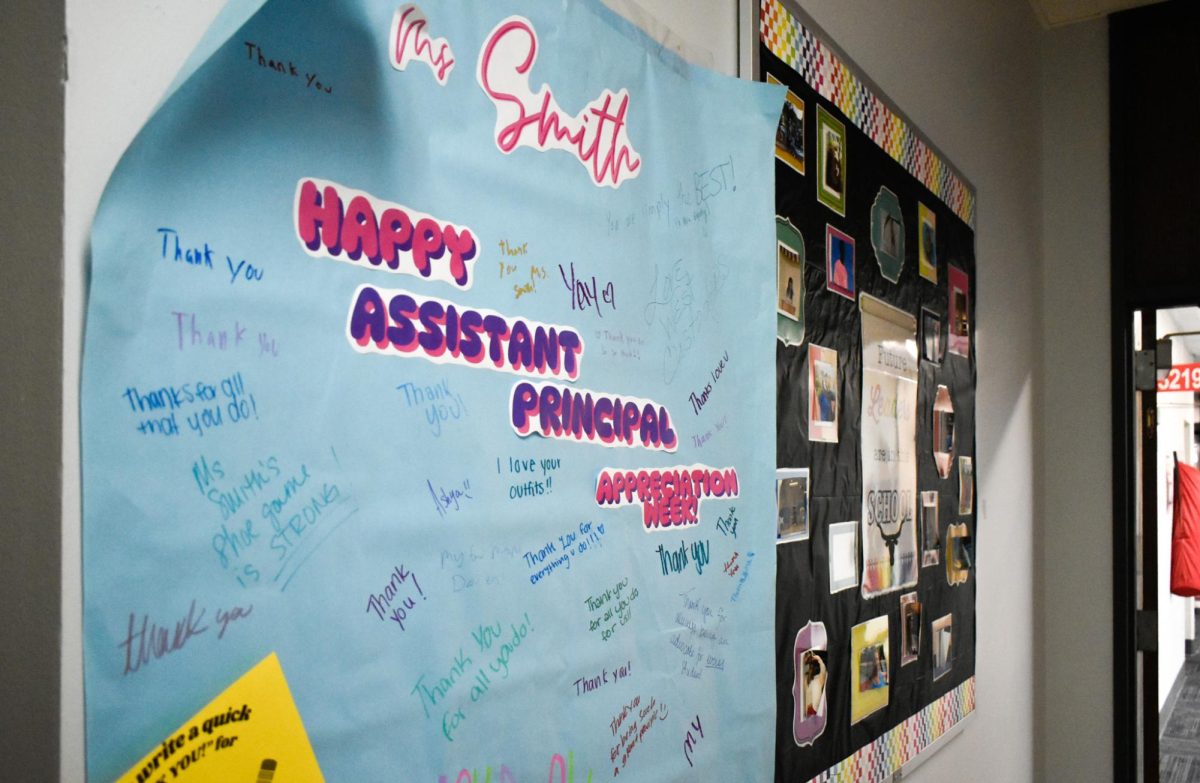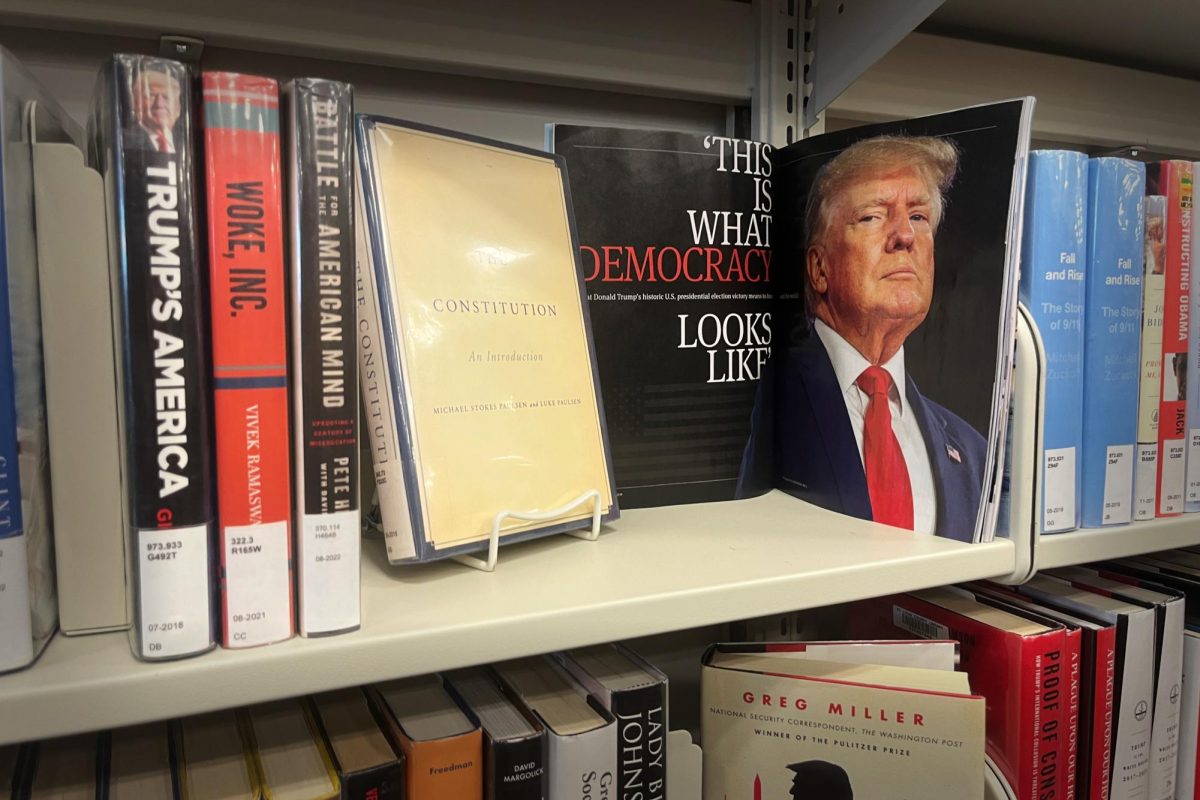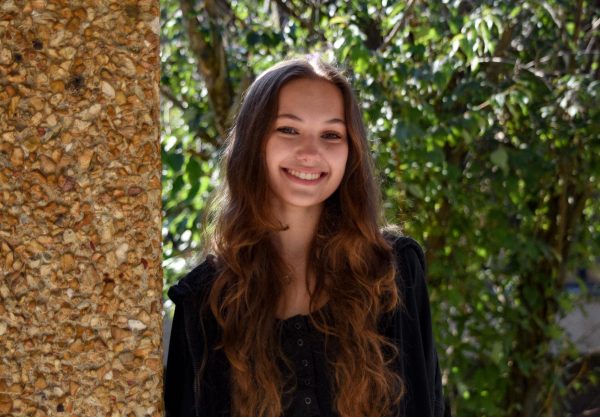In St. Clair, MO, high school English teacher Brianna Coppage was put on academic leave when her personal OnlyFans account was anonymously leaked to school administrators in September. Less than a month later, Kaylee Timonet, a high school senior in Louisiana had her scholarship recommendation rescinded after her principal was shown a video of her dancing provocatively at a party.
Although Mahanoy Area School District v. B.L established that public schools can not directly punish students for speech or actions that happen off their property, Coppage and Timonet’s cases prove that school administrations still can enforce consequences for utilizing social media.
But the question is: should they?
For one, social media isn’t necessarily a reflection of its user: there are plenty of people who take advantage of the internet to curate a specific brand to represent themselves, escaping from the real world into digital personas. But the use of technology — and social media, in particular — has consumed our entire worlds and permeated into our personal lives. With the help of tech and social media, our world shrinks, and suddenly, a stranger on the other side of the world can know exactly what we ate for breakfast.
Eventually this boundary between reality and social media blurs. This dilemma begs the question: What is “postable?”
The two situations concerning Coppage and Timonet seem clear: as long as each incident was not happening inside of the school and was not harmful or discriminatory to any student, staff or faculty member, expressing yourself in a personal, even explicit, way is not a major violation of the use of social media. Outside of school grounds, students and teachers should have the right to express themselves.
It’s also important to acknowledge the nuances of each circumstance. Unlike Timonet — who was recorded by a third party, the DJ of the party — Coppage was fully aware that she was risking her job by consistently posting on her OnlyFans while teaching. Yet she continued to post. On par with many other teachers in Missouri, Coppage was only paid $42,000 last school year. Meanwhile, she claimed that with the subscription-based platform’s help, she earned over 1 million dollars on OnlyFans, championing among the platform’s top creators. We must be conscious of these details because generally, people tend to forget that the people they see on social media are real human beings with real, complex necessities and lives — lives that are more than just the 2D pixels on a screen.
Along with the cases of Coppage and Timonet, there are several other instances circling around social media and the consequences it has on real life, including a teen athlete losing a scholarship due to a video of him using a slur surfacing as well as 10 Harvard students losing their acceptances after posting offensive memes in a Facebook group chat. Parkway’s district policies specifically address cyberbullying and online harassment, as well as disruptive speech.
“If [students] are posting stuff about other kids in class, and it’s not a safe environment for kids because they’re scared of being put on social media for everyone to see, there should be consequences for sure,” physical education and health teacher Jessica Wheeler said. “Things that you put out there, things that you post about exploiting someone else can have massive consequences for you for a long time. Not only are you damaging them, but you’re also damaging you and your reputation.”
The discourse on where exactly the line should be drawn when taking social media into account of a person’s right to expression as a student, staff or faculty member is split, and rightfully so. In many cases, it’s beneficial for prejudice and discrimination posted on a public platform to be called out, especially in regards to being accepted into a school or an academic job around students. Schools and workplaces, particularly those dealing with children, have a right to determine if potential candidates will be good fits for companies’ culture, as reflected in the 70 % of hiring decision-makers who believe a candidate’s social media should be taken into consideration.
The debate, however, becomes trickier when considering individual rights online. In Timonet’s case, the principal refused to send in the recommendation because she reportedly was not “living in the Lord’s way.” The problem with an individual — whether that’s a recruiter or an authoritative figure, like a principal or school board — throwing out consequences based on posts on social media is that the definition of uncouth or vulgar behavior is a judgment that differs from group to group and person to person. There is no single judgment that everyone will agree on and thus, the line is blurred once more.
Due to this gross oversimplification a profile on social media leads to, there have been several calls to cease the screening of candidates via social media, arguing that screening social media accounts can, in some instances, increase bias on behalf of the recruiters. Although there should be boundaries like racism and hate speech, excessively using social media to judge a person’s professionalism based on their private lives is illogical: it assesses their behavior outside of a workplace or school environment, not how they’d act inside of that particular workplace or school environment.
Furthermore, students and teachers are entitled to private personal beliefs, and as long as those beliefs do not immensely affect the school environments they contribute to, using social media to analyze candidates is redundant and unnecessary. In Coppage’s case, no one was antagonized or targeted by her content. Although it is arguable that the discovery of her OnlyFans could be a distraction for her students, it was not her fault or intention; she did not set out to act inappropriately for her school environment.
With social media screening on the rise, scaling back on utilizing social media to evaluate potential candidates doesn’t seem to be likely. Realistically, the best answer to this dilemma is to be extremely mindful of our whereabouts and our postings to minimize the opportunities that are plucked out of our hands due to a glance at our profile pages. As high schoolers and the proverbial guinea pigs in a world that prioritizes technology and global digitization, it’s essential to be able to navigate through it in the best ways we can.
Though it sounds dystopian and though our personal lives do not always match what we post on social media, it does not change the fact that our stories, our posts, our lives, will always be under scrutiny.
“The biggest struggle with kids is [that] they’re so impulsive that they don’t think about what they’re doing in the middle of the impulse,” Wheeler said. “But I think if they simply ask themselves, would [Principal John] McCabe or my parents be cool with this, or would I be cool with this? If they ask themselves that quick question and the answer is no, then they need to stop what they’re doing.”

![According to the American Academy of Child and Adolescent Psychiatry, in the United States, 90% of teenagers have used social media. In an increasingly digitized world, it can be difficult to figure out where to draw the line between your personal life and what you post. “The most influential people, your parents or your principal, would they be alright with what you were doing if they [were] sitting right next to you?” physical education and health teacher Jessica Wheeler said.](https://pwestpathfinder.com/wp-content/uploads/2023/10/IMG_9904-1-1200x799.jpg)



![Red, white and blue, the American flag holds the values of our democracy. The fight that we once endured has returned, as student journalists and senior correspondents across the country are losing their voices due to government control. “[Are] the White House and [the] government limiting free speech [and] freedom of the press? Yes [they are],” chief communications officer of the Parkway School District and former journalist Elisa Tomich said.](https://pwestpathfinder.com/wp-content/uploads/2025/03/Untitled-design-14.jpg)
![A board in the Parkway West counseling department displays pennants of selective universities. With a wide range of students interested in attending, it’s important that these schools have clear priorities when deciding who to admit. “[Washington University] had the major that I wanted, psychology, philosophy, neuroscience. That's a holistic study of the brain, and [WashU is] the only college in the world that offers that. That's the main reason I wanted to go; I got into that program,” senior Dima Layth said.](https://pwestpathfinder.com/wp-content/uploads/2025/02/Flag-1.png)

![Within the U.S., the busiest shopping period of the year is Cyber Week, the time from Thanksgiving through Black Friday and Cyber Monday. This year, shoppers spent $13.3 billion on Cyber Monday, which is a 7.3% year-over-year increase from 2023. “When I was younger, I would always be out with my mom getting Christmas gifts or just shopping in general. Now, as she has gotten older, I've noticed [that almost] every day, I'll open the front door and there's three packages that my mom has ordered. Part of that is she just doesn't always have the time to go to a store for 30 minutes to an hour, but the other part is when she gets bored, she has easy access to [shopping],” junior Grace Garetson said.](https://pwestpathfinder.com/wp-content/uploads/2024/12/DSC_0249.JPG-1200x801.jpg)

![Senior Sally Peters stands in the history hallway, contemplating her choices in the 2024 United States and Missouri elections on Nov. 5. As a member of Diplomacy Club, Peters has discussed key candidates and issues in contemporary American politics. “[As students], we're starting to become adults. We're realizing how much the policies that are enforced and the laws that make it through the House and Senate are starting to affect us. [Opportunities such as] AP [U.S.Government] and Diplomacy Club [make elections feel] a lot more real,” Diplomacy Club vice president and senior Nidhisha Pejathaya said.](https://pwestpathfinder.com/wp-content/uploads/2024/10/Flag-1-1.png)
![Mounting school pressure can leave many students overworked and overstressed. Schools must give students the necessary resources to help assuage student mental health issues and prevent the development of serious crises. “The biggest thing [schools] can do [to protect student mental health] is offer more time [to do work], like a study hall, or offer more support from teachers so that students don't feel stressed out and can get help in areas that they need,” senior Bhavya Gupta said.](https://pwestpathfinder.com/wp-content/uploads/2024/09/unnamed-4.jpg)
![Like many students, sophomore Medina Nanic experiences pressure to do well in school. Through continuous success and achievements, West has developed a high academic standard for students. “Because we’re seen as one [of] the better schools, we have higher standards than the [schools] who aren’t ranked as high. There’s a lot of pressure on students to do [well] and live up to those standards,” Nanic said.](https://pwestpathfinder.com/wp-content/uploads/2024/05/DSC_0029-2-1200x800.jpg)

Debra Klevens • Nov 6, 2023 at 6:52 pm
Great job, Emily!
Will Gonsior • Nov 1, 2023 at 10:18 am
Great job Emily! I’m ngl the amount of yes’s on the you decide voting (which is so fun btw) concerned me
Sharon Early • Nov 1, 2023 at 8:39 am
Great article Emily and great advice!
Lauren Holcomb • Oct 31, 2023 at 12:23 pm
this is so good you’re so talented we should elope maybe